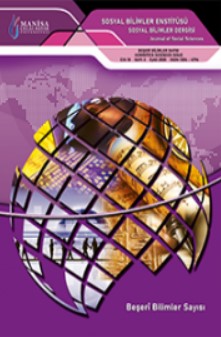Diller O’nu Söyler: ‘Alî Çâvîş’in Üç Dilde Esmâ-i Hüsnâ’sı
Languages Say God: ‘Ali Cavis’s Esma-i Husna In Three Languages
Author(s): Aysun Çelik, Gamze Gizem Avcıoğlu, Toka Ibrahım Mohamed AboelezzSubject(s): Islam studies, Turkish Literature, Translation Studies, Turkic languages
Published by: Celal Bayar Üniversitesi Sosyal Bilimler Enstitüsü
Keywords: Ali Cavis; Esmâ-i Hüsnâ; God; Top Names;
Summary/Abstract: Love and commitment to God in classical Turkish literature; it is expressed in literary genres such as tevhid, divine, münacat, esmâ-i hüsnâ. As an elegant expression of Allah's remembrance, referring to the four verses of the Quran, "esmâ-i hüsnâ" is a species with many examples, commentaries and havass in our culture and literature. During our study; we were able to identify 120 texts of esmâ-i hüsnâ; 60 Arabic, 9 Persian, 51 Turkish. However, it is possible and natural that there are more esmâ-i hüsnâ texts written in various languages for fourteen centuries. In this article; three esmâ-i hüsnâ verses written by Ali Cavis in Arabic, Persian and Turkish were introduced, Arabic and Persian esmâ-i hüsnâs were translated into Turkish and Turkish esmâ-i hüsnâ was translated into Turkish with the alphabet of transcription. While pleading to Allah in three languages, Ali Cavis made an occasion for his forgiveness and revealed a unique example of this species by writing esmâ-i hüsnâ in three languages.
Journal: Celal Bayar Üniversitesi Sosyal Bilimler Dergisi
- Issue Year: 18/2020
- Issue No: Sp. Issue
- Page Range: 197-216
- Page Count: 20
- Language: Turkish

